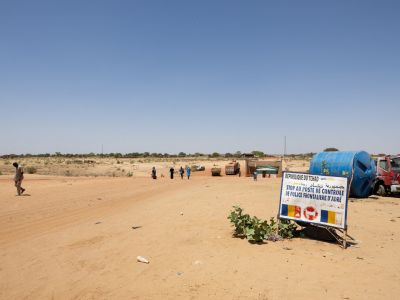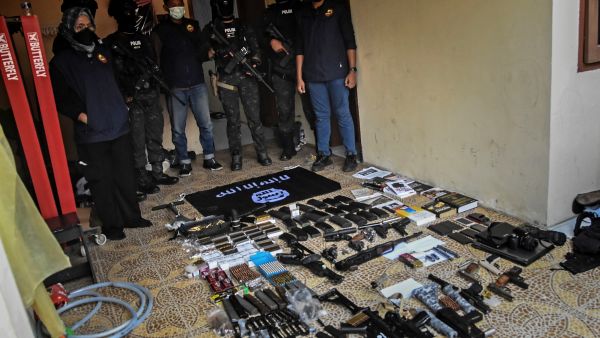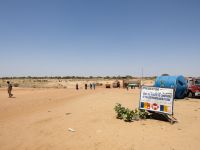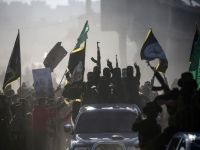ALBAWABA - Iraqi security forces reported on Saturday the arrest of two "dangerous" Islamic State (ISIS) leaders accused of committing several attacks across Al-Falluja in Al Anbar.
Intelligence troops apprehended "two of the most dangerous ISIS leaders" in an operation conducted outside Iraq, according to the military's Security Media Cell, which did not identify where.
The two detained men were identified as Issam Abd Ali Saeedan, known as Abu Zaid, and Bashir Abd Ali Saeedan known by the alias Abu Ahmed Etisalat. They were “involved in the most heinous terrorist crimes in Iraq,” according to the statement.
In a post on Facebook, Iraqi National Intelligence Services announced on Saturday the capture of Abu Zaid and Abu Ahmed Etisalat. "With the personal follow-up of the Prime Minister, Commander-in-Chief of the Armed Forces, exceptional efforts, and intelligence tracking that continued for years, the heroes of the Iraqi National Intelligence Service were able to arrest two of the most dangerous leaders of ISIS terrorists who were involved in the most heinous terrorist crimes in Iraq." the statement said.
During a visit to the Netherlands on February 16, Iraqi Prime Minister Mohammed Shia al-Sudani confirmed that his government has requested that the US-led international coalition complete its mission in Iraq after ten years, citing the Iraqi security forces' efficiency and readiness.
Al-Sudani stated that Baghdad no longer needed the presence of non-Iraqi state actors in the nation to aid in the war against ISIS, which was the primary reason for the coalition's formation, and that his administration believes in the Iraqi Armed Forces' capabilities.
In January 2014, Fallujah became the first Iraqi city to fall to ISIS. The terrorist group went on to conquer huge areas of land in central and northern Iraq. ISIS was declared territorially destroyed in 2017 after Kurdish and Iraqi fighters backed by a US-led coalition drove them out of the territory they had conquered years before in a daring attack.
Issam Abd Ali Saeedan was reportedly in charge of documenting "crimes" against Iraqi soldiers in Fallujah, while Bashir Abd Ali Saeedan oversaw media coverage of attacks in the city after 2014.
Despite its geographical loss, Iraqi security forces continue to pursue ISIS remnants, particularly in contested territories spanning Kirkuk, Salahaddin, and Diyala provinces.










